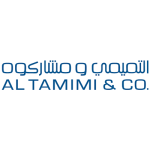
|
Ahmed El Amoury |
A foreign construction company in Qatar recently won a lawsuit in relation to a dispute with a local company. This case is significant because the competent court applied and upheld the principle of personal freedom and the rights of movement set out in the Qatari Constitution. These hold that personal freedom and the rights of movement outside the state should not be restricted except in accordance with the law.
Background
A local company (the claimant) filed a civil case against a foreign company (the defendant) requesting the court to issue a judgment obligating the defendant to pay a ratio of five percent of the total sum of the contracted project, in addition to compensation of QAR 1,000,000 (approximately $275, 000).
Simultaneously, the claimant submitted a request for the court to impose a travel ban against the defendant's representatives (the managers and authorised signatories). The claimant's grounds for the request were that the defendant may smuggle the company's assets outside Qatar. The competent judge issued an order imposing a travel ban against the defendant's representatives.
The defendant's representatives (the petitioners) appealed the decision regarding the imposition of the travel ban before the court of first instance, based on the following reasons:
the defendant, for which the petitioners work, is one of the largest foreign construction companies, maintains a high level of creditability and executes large projects in Qatar. Thus, the fear that the defendant may dissipate the defendant's assets was unreasonable;
the order imposing the travel ban violated article 36 of the Qatari Constitution. This stipulates that personal freedom is guaranteed. No person may be arrested, detained or searched, and his stay or his freedom of residence or movement restricted except in accordance with provisions of the law; and
the defendant is a limited liability company which has a separate legal personality independent of its shareholders and so the shareholders are not responsible for the company's debts. The Court of Cassation in appeal number 37 of 2008 stated that a limited liability company has its financial disclosure which is independent from its partners' custody and hence the representative director of this company has his own financial disclosure that is independent from it. Thus, he is not responsible for its debts and not asked to fulfil them with his own money.
In view of the above, the petitioners argued that the court's order preventing them from travelling restricted their freedom in breach of the principle of freedom of movement guaranteed by the Qatari Constitution and the provisions of the Commercial Companies law. The reasoning for this was twofold.
Firstly, the petitioners are not personally liable to the claimant for the financial commitments of the defendant. Therefore, even in the event the court issues a verdict against the defendant, the petitioners should not be held responsible for paying the value of this debt. Thus, the travel ban does not guarantee any rights to the claimant.
Secondly, there is no merit to the claimant's claim and no factual evidence was presented to support the claimant's allegations. Hence, the travel ban constituted a violation of the provisions of the Qatari Constitution, which requires a high threshold for the instances under which the freedom of persons may be restricted and confirms that such instances must be kept to a minimum. The case at hand did not satisfy the threshold of seriousness that must be applied in issuing a travel ban, particularly because the claimant's request was not based on any substantiated evidence.
Ruling of the court of first instance
The court of first instance accepted the petitioners' arguments and issued a judgment revoking the travel ban based on the following reasons:
The claimed amount in this case was not substantiated in fact to the petitioners personally.
It was established that the defendant is a credible company with a project value exceeding QAR 2 billion (approximately $550 million). In addition, the project was extended for an additional duration. Therefore, there was no fear that the defendant may dissipate any of the claimant's claimed assets.
The petitioners' arguments were legally correct since the defendant has an independent juristic person separate from its shareholders. Thus, the managers should not be held personally responsible for the defendant's debts except in the circumstances determined by the law.
The freedom of movement is guaranteed by virtue of the constitution; it is prohibited to place restrictions on this freedom except for serious reasons.
The claimant did not submit an appeal for this judgment, which therefore became final.
This judgment is a clear example of the court's application of the provisions of the Qatari Constitution, which uphold a person or persons' freedom of movement without any restrictions. The judgment has confirmed that a travel ban should be restricted to circumstances where there are serious reasons justifying its imposition, such as if the debtor will flee the country or transfer his assets outside Qatar. It should be subject to the applicant's ability to provide prima facie evidence that such risks exist. The judgment should allay limited liability managers' fears that a travel ban may be imposed against them for the debts or liabilities of their company.
Ahmed El Amoury

